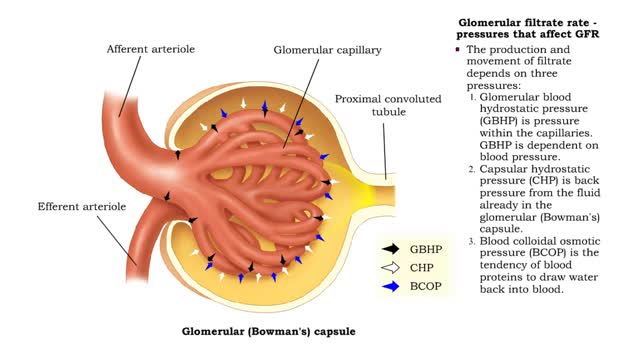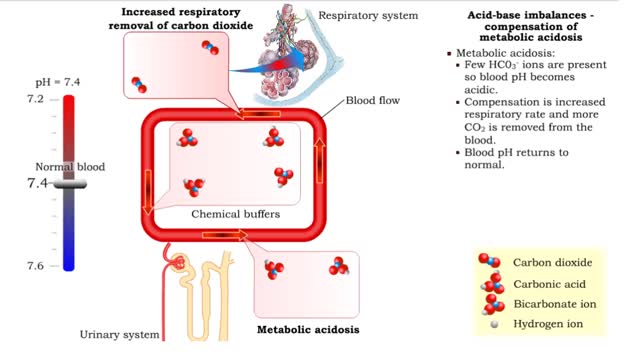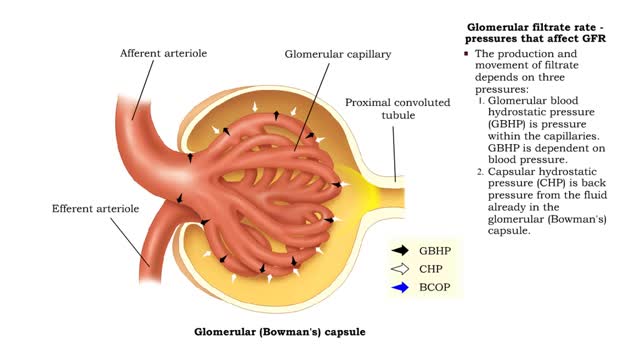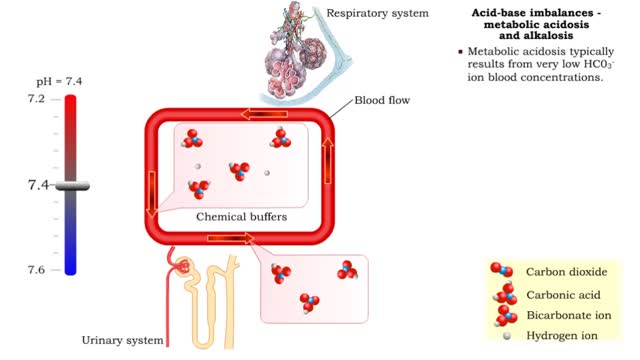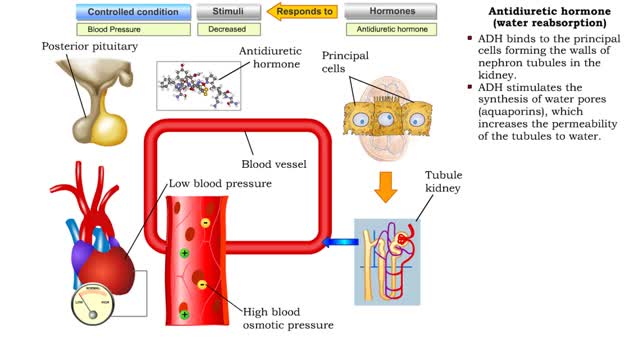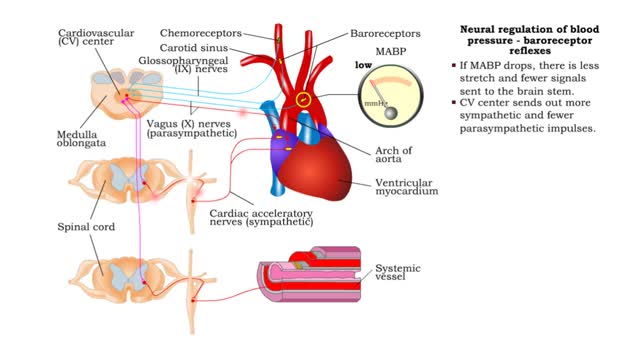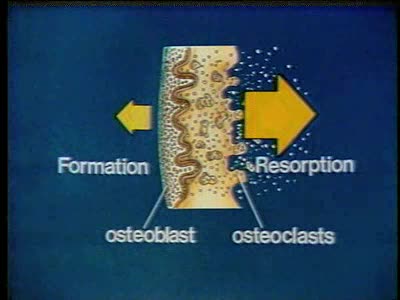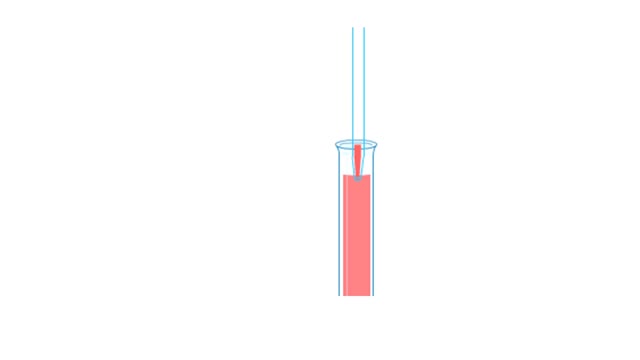Search Results
Results for: 'Normal inspiration'
Glomerular filtrate rate: pressures that affect GFR, NFP & GFR and blood composition
By: HWC, Views: 12222
• The glomerular filtration rate is the amount of filtrate formed per minute within the renal corpuscle. • Once the filtrate is formed it moves down the tubule. • The production and movement of filtrate depends on three pressures: I. Glomerular blood hydrostatic pressure (GBHP) is ...
Acid-base imbalances - compensation of metabolic acidosis and alkalosis
By: HWC, Views: 11869
1. Metabolic acidosis: • Few HC03- ions are present so blood pH becomes acidic. • Compensation is increased respiratory rate and more CO2 is removed from the blood. • Blood pH returns to normal. 2. Metabolic alkalosis: • Many HC03- ions are present so blood pH becomes alkaline...
By: Administrator, Views: 14592
Atrophy is the partial or complete wasting away of a part of the body. Causes of atrophy include mutations (which can destroy the gene to build up the organ), poor nourishment, poor circulation, loss of hormonal support, loss of nerve supply to the target organ, excessive amount of apoptosis of c...
Glomerubular filtrate rate -pressures that affect GFR and net filtration pressure
By: HWC, Views: 12092
• The glomerular filtration rate is the amount of filtrate formed per minute within the renal corpuscle. • Once the filtrate is formed it moves down the tubule. • The production and movement of filtrate depends on three pressures: I. Glomerular blood hydrostatic pressure (GBHP) is pre...
Acid-base imbalances - compensation of respiratory acidosis and alkalosis
By: HWC, Views: 11966
• When one pH balancing system is affected then the other balancing system attempts to correct, or compensate for, the pH imbalance. - Respiratory acidosis: • Excessive CO2 is present so blood pH becomes acidic. • Compensation is increased secretion of H+ into urine and reabsorption ...
Antidiuretic hormone (vasoconstriction, water reabsorption & sweat inhibition)
By: HWC, Views: 11546
• Dehydration, blood loss, and low amounts of water in the blood can cause blood volume and pressure to decrease. • Neurosecretoxy cells in the posterior pituitary release antidiuretic hormone(ADH). • ADH binds to smooth muscle cells in blood vessel walls, stimulating them to vasoconstr...
Neural regulation of blood pressure - baroreceptor and chemoreceptor reflexes
By: HWC, Views: 12096
• The nervous system regulates blood pressure with two reflex arcs: baroreceptor and chemoreceptor. ■ Baroreceptors (pressure) and chemoreceptors (chemical) are located in the carotid sinus and aortic arch. • Carotid sinus reflex helps maintain normal blood pressure in brain. • Ba...
By: Administrator, Views: 14439
With normal aging, individuals can lose 1.0 to 1.5 inches in height. Loss of more than 1.5 inches in height can be related to vertebral compression fractures and other issues due to osteoporosis.
A Human Karyotype Preparation Animation
By: HWC, Views: 9076
Blood is collected from the person being analyzed. The blood is added to a growth medium that also contains a chemical that stimulates mitosis. The cells are allowed to grow in this medium for two or three days at body temperature. Colchicine is added to arrest cell division at metaphase. T...
Advertisement



